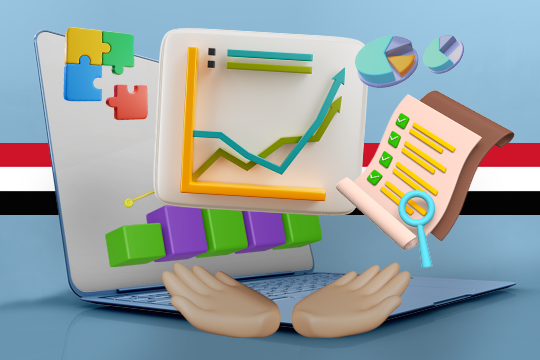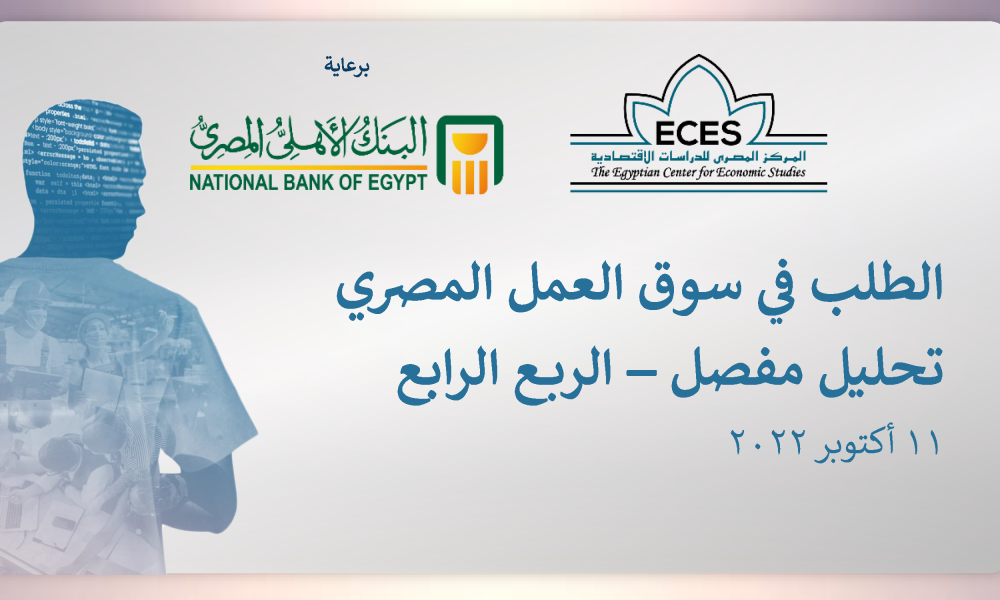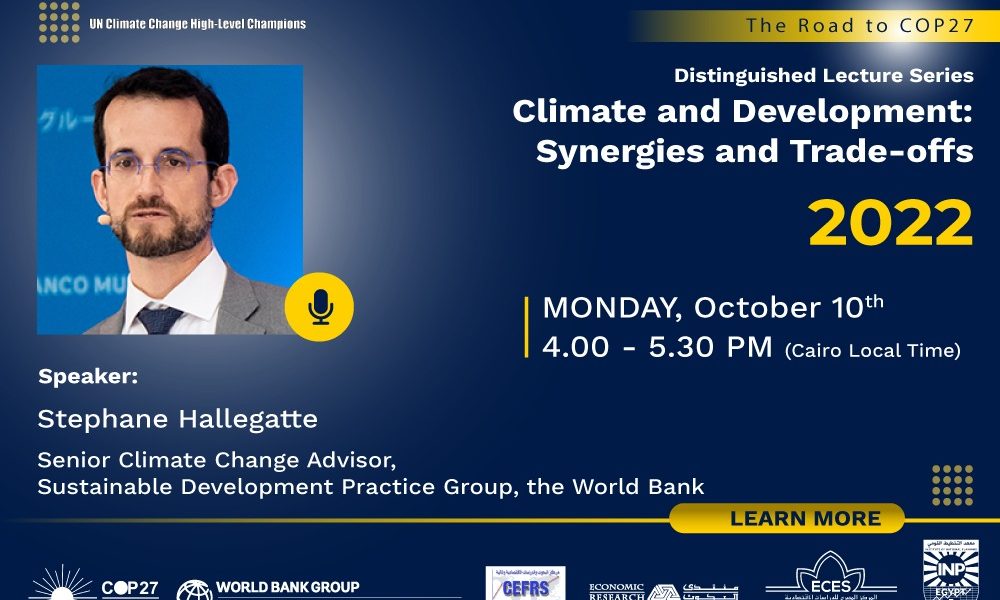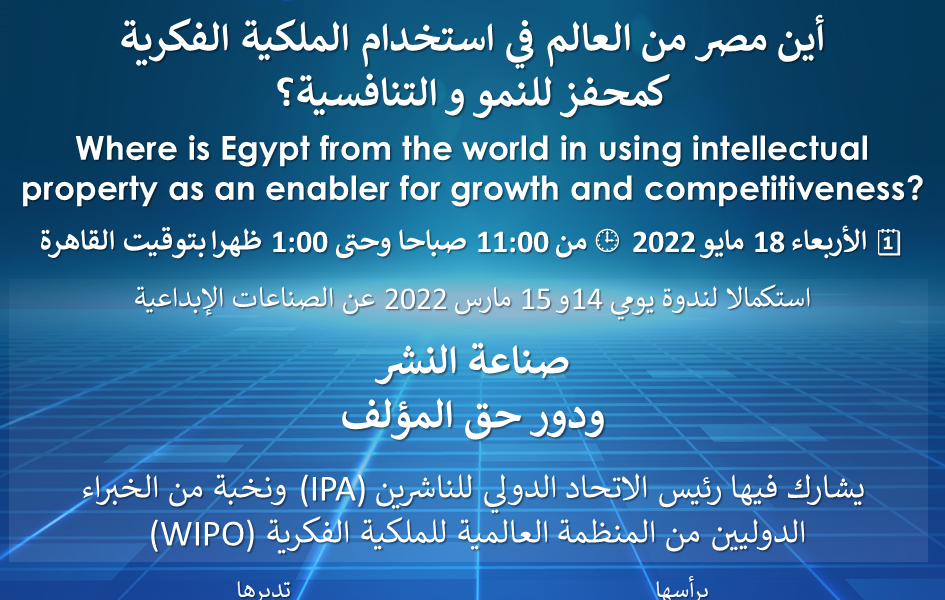In the lead up to the COP27 meeting in Egypt, the Middle East Institute (MEI) held this special one-day virtual conference, during which a distinguished panel of experts will discuss the themes of water resources adaptation, climate financing, and climate justice. With the growing need to adapt to and mitigate against amplifying impacts of climate […]
This webinar aimed to present ECES’s macroeconomic model for the Egyptian economy. The first application of the model presents a detailed analysis of recent inflation trends aiming to explain and understand the monetary policy, how it works and assessing it.
The findings of Y1-Q4 analysis revealed that the Egyptian economy does not produce enough jobs. Job creation is severely slow nationwide and has declined during the surveyed quarter for blue-collar jobs. Overall, job creation is highly volatile, though the problem is less severe for white collars compared to blue collars. The analysis also shows weak […]
COP27 Presidency, Dr. Mahmoud Mohieldin UN Climate Change High-Level Champion for COP27 and the World Bank Group in partnership with the Center for Economic and Financial Research & Studies (CEFRS), the Economic Research Forum (ERF), the Egyptian Center for Economic Studies (ECES) and the Institute of National Planning (INP) have the pleasure to invite you […]
This conference comes as a follow-up to the first round held on June 20th & 21st, and it has 5 objectives: The conference took place on October 3rd, 2022 at Four Seasons Cairo Hotel – First Residence, Versaille Hall. More details about the full series of events available in the web special (Info Hub) via […]
This webinar discussed the findings of an ECES study on Egypt’s ICT value chain. The study aims to determine whether Egypt’s ICT sector is following a lower or a higher growth path, to what extent it is using its full potential, the extent to which it is able to respond quickly to the current technological […]
Egypt hosted the United Nations summit on climate change (COP27) in November in the Red Sea resort city of Sharm El-Sheikh. COP27 attempting to push countries to make good on their pledges to sharply reduce greenhouse gas emissions, facilitate “non-adversarial” talks on compensation to developing countries for global warming impacts and allow climate activists to […]
Organized in collaboration with the Center for International Private Enterprise (CIPE), this hybrid event discussed the findings of an ECES study on the institutional, structural, and legislative dimensions of the IDA, shedding light on the experiences of other countries in the field of industrial development.
In this hybrid event, we hosted Ragui Assaad to discuss his most recent book carrying the same title. He argued that a favorable, but temporary, demographic situation has resulted in reduced labor supply pressures on the Egyptian labor market in the past decade, leading to falling unemployment rates. However, the drop in unemployment is attributed […]
The publishing industry suffers from several challenges related to counterfeiting and piracy, which increased sharply after the evolving of COVID-19, causing massive losses to the content industry in many countries. ECES organized this webinar in continuation of a previous virtual event held in March under a collaboration agreement with the World Intellectual Property Organization (WIPO). […]







